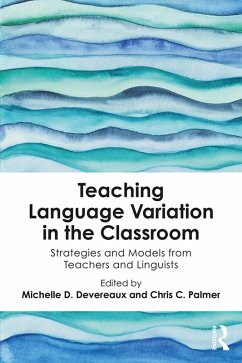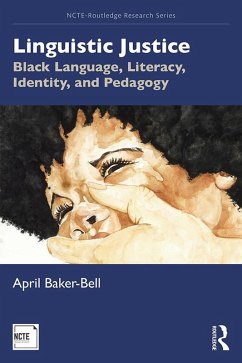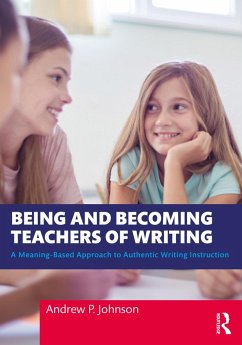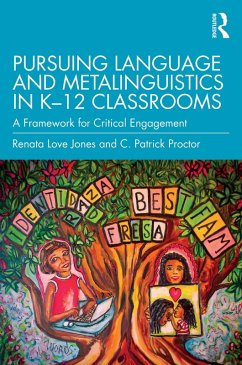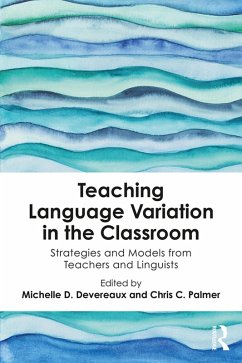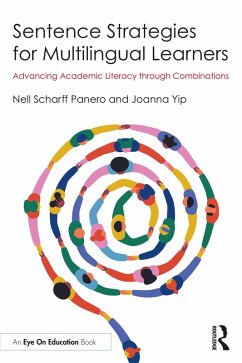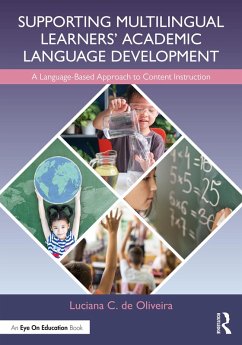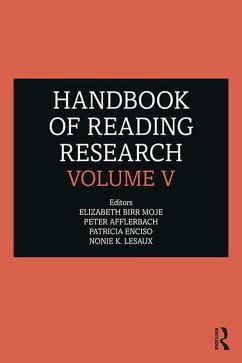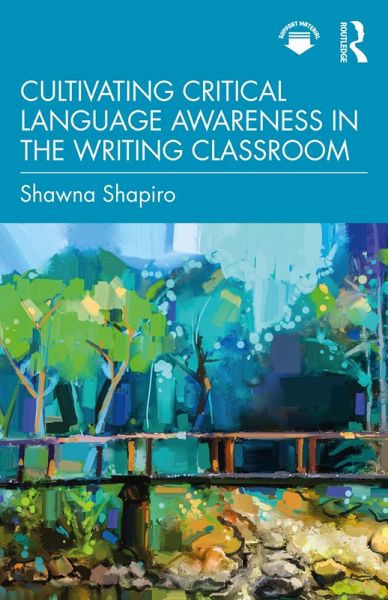
Cultivating Critical Language Awareness in the Writing Classroom (eBook, PDF)
Versandkostenfrei!
Sofort per Download lieferbar
39,95 €
inkl. MwSt.
Weitere Ausgaben:

PAYBACK Punkte
20 °P sammeln!
This book introduces Critical Language Awareness (CLA) Pedagogy as a robust and research-grounded framework to engage and support students in critical examinations of language, identity, privilege and power.Starting with an accessible introduction to CLA, chapters cover key topics-including World Englishes, linguistic prejudice, news media literacy, inclusive language practices, and more-in an inviting and thought-provoking way to promote reflection and analysis. Part I provides an overview of the foundations of CLA pedagogy, while Part II highlights four instructional pathways for CLA pedagog...
This book introduces Critical Language Awareness (CLA) Pedagogy as a robust and research-grounded framework to engage and support students in critical examinations of language, identity, privilege and power.
Starting with an accessible introduction to CLA, chapters cover key topics-including World Englishes, linguistic prejudice, news media literacy, inclusive language practices, and more-in an inviting and thought-provoking way to promote reflection and analysis. Part I provides an overview of the foundations of CLA pedagogy, while Part II highlights four instructional pathways for CLA pedagogy: Sociolinguistics, Critical Academic Literacies, Media/Discourse Analysis, and Communicating Across Difference. Each pathways chapter is structured around Essential Questions and Transferrable Skills, and includes three thematic learning sequences. Part III offers tools and guidance for tailoring CLA pedagogy to the reader's own teaching context and to students' individual needs.
The volume's wealth of resources and activities are a pedagogical toolkit for supporting and embracing linguistic diversity in the classroom. The cohesive framework, concrete strategies, engaging activities, and guiding questions in this volume allow readers to come away with not only a deeper understanding of CLA, but also a clear roadmap for implementing CLA pedagogy in the classroom.
Synthesizing relevant research from educational linguistics and writing studies, this book is ideal for courses in English/literacy education, college composition, L2 writing instruction, and educational linguistics.
Starting with an accessible introduction to CLA, chapters cover key topics-including World Englishes, linguistic prejudice, news media literacy, inclusive language practices, and more-in an inviting and thought-provoking way to promote reflection and analysis. Part I provides an overview of the foundations of CLA pedagogy, while Part II highlights four instructional pathways for CLA pedagogy: Sociolinguistics, Critical Academic Literacies, Media/Discourse Analysis, and Communicating Across Difference. Each pathways chapter is structured around Essential Questions and Transferrable Skills, and includes three thematic learning sequences. Part III offers tools and guidance for tailoring CLA pedagogy to the reader's own teaching context and to students' individual needs.
The volume's wealth of resources and activities are a pedagogical toolkit for supporting and embracing linguistic diversity in the classroom. The cohesive framework, concrete strategies, engaging activities, and guiding questions in this volume allow readers to come away with not only a deeper understanding of CLA, but also a clear roadmap for implementing CLA pedagogy in the classroom.
Synthesizing relevant research from educational linguistics and writing studies, this book is ideal for courses in English/literacy education, college composition, L2 writing instruction, and educational linguistics.
Dieser Download kann aus rechtlichen Gründen nur mit Rechnungsadresse in A, B, BG, CY, CZ, D, DK, EW, E, FIN, F, GR, HR, H, IRL, I, LT, L, LR, M, NL, PL, P, R, S, SLO, SK ausgeliefert werden.





